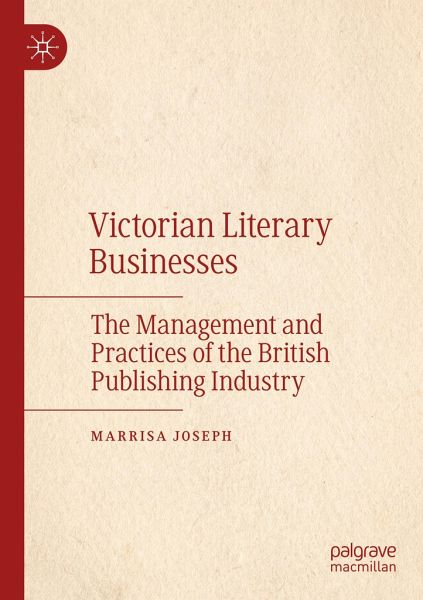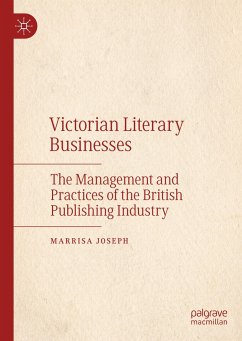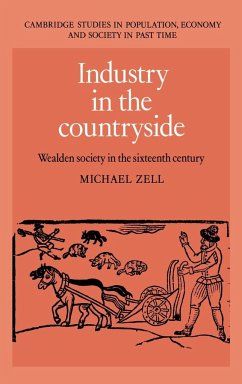
Victorian Literary Businesses
The Management and Practices of the British Publishing Industry
Versandkostenfrei!
Versandfertig in 6-10 Tagen
106,99 €
inkl. MwSt.
Weitere Ausgaben:

PAYBACK Punkte
53 °P sammeln!
This book explores the business practices of the British publishing industry from 1843-1900, discussing the role of creative businesses in society and the close relationship between culture and business in a historical context. Marrisa Joseph develops a strong cultural, social and historical discussion around the developments in copyright law, gender and literary culture from a management perspective; analysing how individuals formed professional associations and contract law to instigate new processes. Drawing on institutional theory and analysing primary and archival sources, this book trace...
This book explores the business practices of the British publishing industry from 1843-1900, discussing the role of creative businesses in society and the close relationship between culture and business in a historical context. Marrisa Joseph develops a strong cultural, social and historical discussion around the developments in copyright law, gender and literary culture from a management perspective; analysing how individuals formed professional associations and contract law to instigate new processes. Drawing on institutional theory and analysing primary and archival sources, this book traces how the practices of literary businesses developed, reproduced and later legitimised. By offering a close analysis of some of publishing's most influential businesses, it provides an insight into the decision-making processes that shaped an industry and brings to the fore the 'institutional story' surrounding literary business and their practices, many of which can still be seen today.












